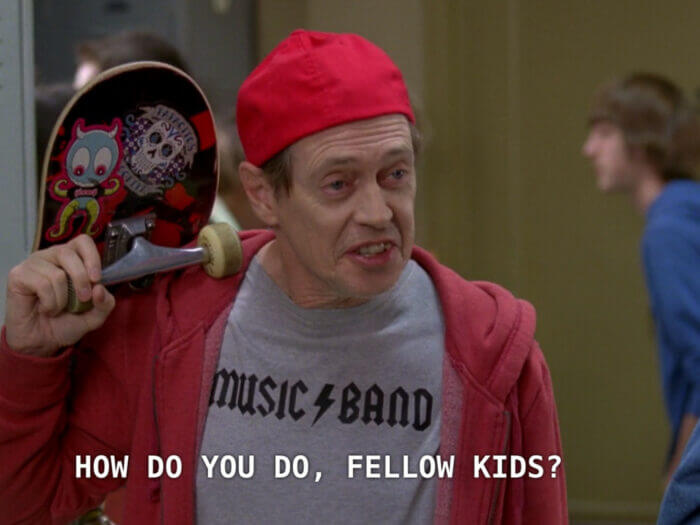By Caroline Brown, Copywriter, Creative | The Marketing Arm
Much to the chagrin of young millennials everywhere, we are no longer the arbiters of what’s cool. As the youngest among us creep toward 30, Gen Z is the new guard, shaping culture and language as they come of age. The latest buzzword? “Cheugy.”

Basic. Cringe. Old news. To be cheugy is to be uncool in a very specific way — thinking that your love of The Office “is a personality trait,” captioning your latest Instagram post “did a thing!” or being a #girlboss in a woke feminist world — are top cheugy offenders. Cheugy-ness is wholly attention-seeking and unoriginal, and while it’s largely reserved for adult millennials (think “okay, boomer” for a new generation), it’s also a sign of something deeper. Gen Z aren’t kids anymore, and with their independence comes judgement, opinions, and a view of the world that marketers are dying to understand. Here are a few things for brands and marketers to keep in mind if they want to successfully connect with Gen Z consumers.
1. Stay Current
As Ferris Bueller says, “life moves pretty fast.” By the time you read this, the term “cheugy” will already be cheugy. Gen Z’s hyper-connectivity has given brands more avenues than ever before to reach them on social media. As of 2020, Gen Z accounts for 40% of global consumers, and their minds (and their trends) move as fast as their social media feeds. Almost half of those surveyed (49%) say they “go to bed with no idea of what the next day will hold or what topic will capture their attention.” For many marketers, staying current is easier said than done.
The best way to stay up-to-date on what Gen Z thinks is cool? Get your info straight from the horse’s mouth. As a generation, Zoomers want and expect two-way communication with the brands they buy from. This means connecting with consumers on social media, but also going beyond that to involve them in development. Across the board, Gen Z is looking to engage with brands with 39% of those in mature markets wanting to submit ideas for product design and 41% interested in reviewing products.
By listening to and leveraging Gen Z voices, brands move beyond “authenticity” as a buzzword and actually implement it as a practice — not to mention avoiding the mockery of accounts like “Brands Saying Bae.”

2. Stay Real
In my opinion, the opposite of cringe isn’t cool, it’s authentic. Brands LOVE to put “authenticity” in pitch decks and brand guidelines, but seldom know how to implement it effectively. You can’t just toss in outdated slang or try your hand at TikTok — Zoomers will eat you alive. Gen Z wants to see themselves in their advertising, demanding things like LGBTQ+ representation over “rainbow-washing” and corporate transparency over “greenwashing.”
It can be tempting to generalize Gen Z (as I have so many times in this blog post already), but they’re not a monolith. The meaning of authenticity will vary from consumer to consumer — but Matt Voda managed to pinpoint four main tenets that work across the board:
- A brand that stands for something other than making a profit.
- A brand that helps improve the world in some unique way.
- A brand that is transparent and shares more about how it operates.
- A brand that keeps it “real” – using real, relatable people in its communications and advertising.
Believing that the “right” thing and the profitable thing are at odds with each other is so 2000-and-late, especially because when it comes to the buying power of Gen Z, they’re one in the same. As an extremely politically minded generation, they demand that every dollar they spend backs up what they stand for. More than just paying attention to what brands say, Gen Z is keeping an eye on what brands do, and they’re saving all the receipts.
3. Stay Smart
Born with information at their fingertips and raised in the era of “fake news,” savvy Gen Z consumers have a strong B.S. meter, and they are quick to use it. Research shows that they have strong filters for inauthentic or irrelevant information, and they aren’t afraid to call brands out. “In order to connect with Gen Z in authentic ways, brands can’t rely on performative activism,” says Brent Farrell for The Drum. “[Brands] must rise to the challenge of real change-making.”
Brands who want to talk the talk but refuse to walk the walk will pay the price. Gen Z has less brand loyalty than previous generations, and 80% of Gen Z consumers say they refuse to buy from companies involved in scandals. Where previous generations were happy to clamor for crumbs of representation, Gen Z can and will see through companies exploiting or tokenizing people for a profit — and in true Zoomer fashion, they’ll roast you to their friends.

If you’ve made it to this point believing that Gen Z is a fickle, meme-obsessed bunch of trolls, I’d suggest you dig a little deeper. If you ask me, the kids are alright. They’re a deeply empathetic, smart generation doing their best to use their influence to drag brands into a future where value trumps sales. Plus, if “cheugy” shows us anything, it’s that we can always count on them to find new and innovative ways to remind the rest of us just how uncool we are.
Caroline Brown is a creative copywriter based in TMA’s Dallas hub.
original content 








